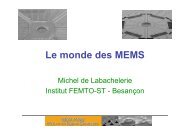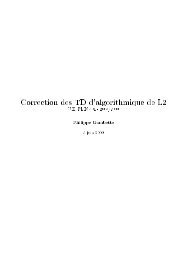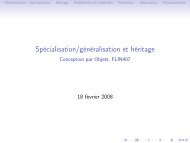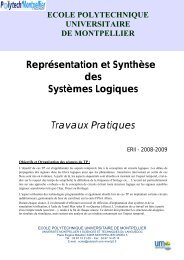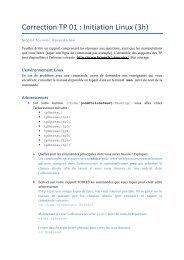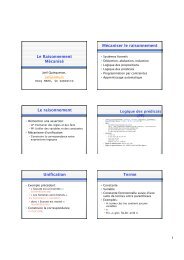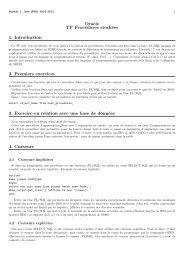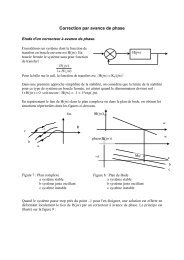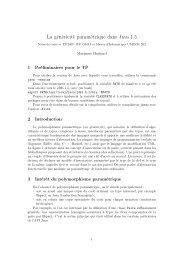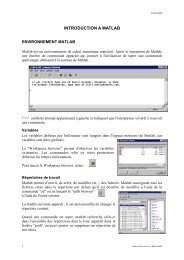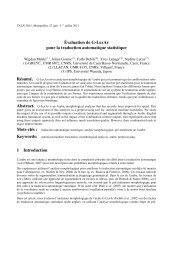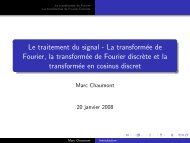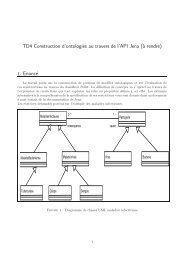Evaluating User Experience in Games: Concepts and Methods - Lirmm
Evaluating User Experience in Games: Concepts and Methods - Lirmm
Evaluating User Experience in Games: Concepts and Methods - Lirmm
You also want an ePaper? Increase the reach of your titles
YUMPU automatically turns print PDFs into web optimized ePapers that Google loves.
9 Digital <strong>Games</strong>, the Aftermath 155<br />
9.3.1.1 Participants <strong>and</strong> Procedure<br />
We organized six focus groups with gamers. The composition of the focus groups<br />
differed accord<strong>in</strong>g to several variables such as game frequency, age, <strong>and</strong> occupational<br />
status. Two focus groups (FG1 <strong>and</strong> FG2) <strong>in</strong>cluded <strong>in</strong>frequent gamers<br />
(i.e., people who game at least once a month), two focus groups (FG3 <strong>and</strong> FG4) consisted<br />
of frequent gamers (i.e., people who game at least once a week), <strong>and</strong> two focus<br />
groups (FG5 <strong>and</strong> FG6) were a mix of frequent <strong>and</strong> <strong>in</strong>frequent gamers. Participants’<br />
ages ranged from 19 to 37 years. In FG1, participants were five undergraduate students<br />
of which two were female. FG2 consisted of three male participants, also<br />
undergraduates. FG3 had four male participants <strong>and</strong> was a mix of undergraduate<br />
<strong>and</strong> graduate students. FG4 had four participants; these were people over 30 years<br />
of age, all with a full-time job. Participants from FG5 were four work<strong>in</strong>g people<br />
<strong>in</strong> their late twenties/early thirties, two of them were female. All three participants<br />
from FG6 were female undergraduate students. The focus groups were led by a<br />
moderator <strong>and</strong> an assistant moderator.<br />
Each focus group began with an <strong>in</strong>troductory round <strong>in</strong> which the moderator <strong>and</strong><br />
the assistant moderator presented themselves <strong>and</strong> gave a brief description of the<br />
ma<strong>in</strong> goal of the focus group. More concretely, they expla<strong>in</strong>ed that the focus group<br />
was about digital games <strong>and</strong> player experience. Participants were further told that<br />
they could freely talk about how they experience digital gam<strong>in</strong>g. Then, participants<br />
presented themselves, giv<strong>in</strong>g their name, game frequency, <strong>and</strong> the type of games<br />
they usually played. The actual focus group discussion was clustered around three<br />
core questions by means of a semi-structured questionnaire. The three core questions<br />
were fixed but additional questions could be posed, prob<strong>in</strong>g for clarification<br />
or more <strong>in</strong>-depth <strong>in</strong>sights. The three core questions were (1) On what occasions do<br />
you typically start gam<strong>in</strong>g? (prob<strong>in</strong>g both motivations <strong>and</strong> opportunities for game<br />
play), (2) what do you experience or feel while gam<strong>in</strong>g? (i.e., <strong>in</strong>-game experiences),<br />
<strong>and</strong> (3) what do you experience or how do you feel after gam<strong>in</strong>g? (i.e., postgame<br />
experiences). In this chapter, we only discuss the third question about postgame<br />
experiences. For a detailed description of the rema<strong>in</strong>der of this focus group study,<br />
we refer to Poels et al. (2007).<br />
Each focus group took about 90 m<strong>in</strong> <strong>in</strong> total <strong>and</strong> approximately one-third of<br />
the discussion time was devoted to the question concern<strong>in</strong>g postgame experiences.<br />
Participants were rewarded 10 C for their participation. All focus group <strong>in</strong>terviews<br />
were recorded <strong>and</strong> transcribed. Citations we report <strong>in</strong> the results section are all<br />
translated from Dutch.<br />
9.3.1.2 Results<br />
Given the exploratory nature of this focus group study <strong>and</strong> the newness of the topic,<br />
we did not employ a formal cod<strong>in</strong>g scheme to analyze our results. This result section<br />
is structured accord<strong>in</strong>g to the different experiences that we proposed <strong>in</strong> the<br />
theoretical part of this chapter.



